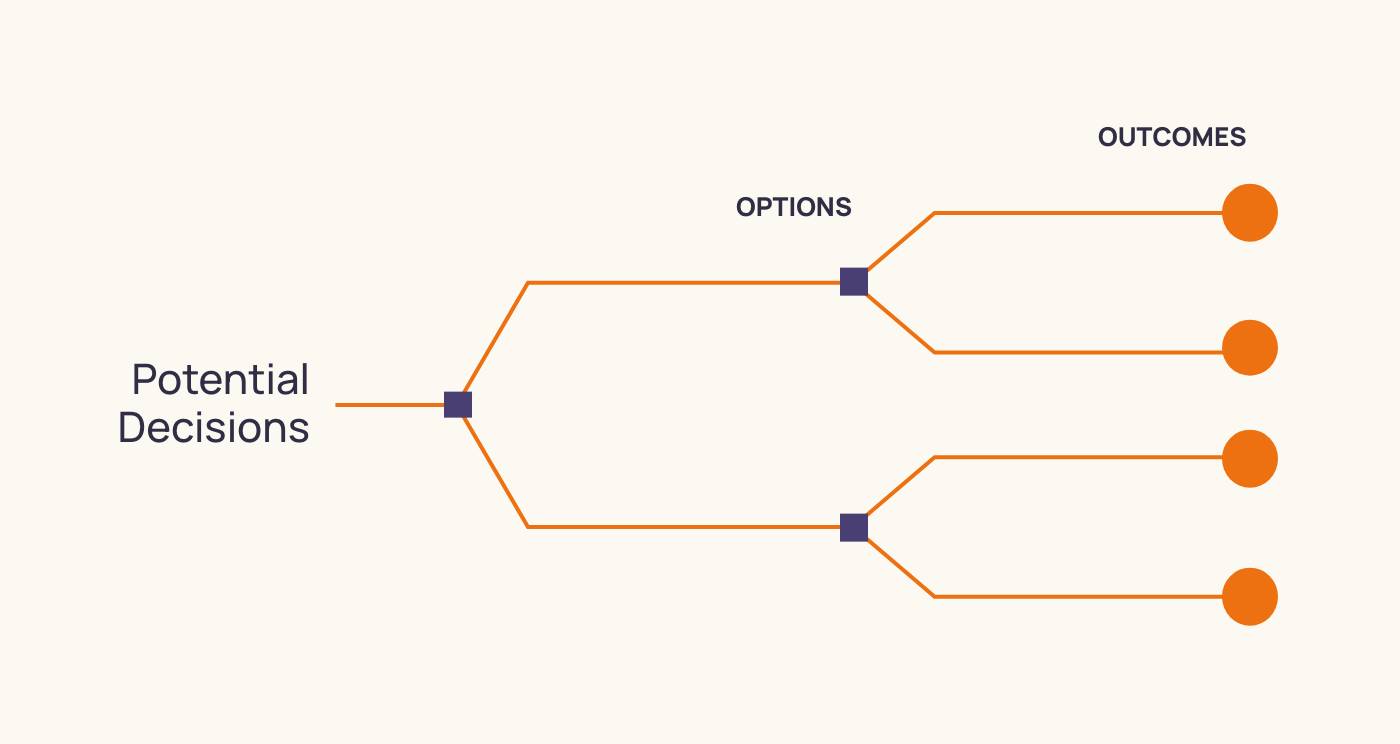Introduction
The role of a project manager in the professional services industry is evolving, perhaps even faster than technology advances and workforces shift.
Today’s successful project managers are constantly looking toward the future and expanding their skills to prepare for industry changes. Through in-depth training and the cultivation of new skills, project managers can remain loyal, vital assets to their company while also growing in their careers.
Career growth includes gaining new skills and adopting new tools for your toolkit, always looking for opportunities to learn and grow. However, the search for those opportunities can be confusing without knowing which key areas to focus on for maximum impact.
In this eBook, we will outline four critical areas of growth for the project manager of the future so that you and your project management team can create successful, fulfilling careers and attain skills that will drive improved business performance in ways that were not possible before.

Critical Data Science Skills for Project Management
Machine learning can be defined as the use of computer algorithms that automatically and steadily improve through experience. The algorithms refine and update based on past iterations to improve calculations over time. When a company generates huge amounts of data during its processes, machine learning can play a critical role in not only utilizing this data, but helping to make increasingly detailed insights over time through the usage of this data. Machine learning can be accomplished through many different techniques, each with their own advantages and challenges. As such, becoming educated about machine learning can help project managers keep up with its increasing prominence in business and understand when and how to implement these techniques in their own work.
Whether a company is making data-driven decisions for the first time or has long established data as a critical part of their business processes, having training in data science is key. Data science plays a critical role in communications — enabling project managers to connect internally and cross-departmentally regarding the success, failures, and potential pitfalls of their projects. Without proper training in data visualization and communication, project managers will need to rely on third parties rather than business intelligence to drive business decisions.
Data communication skills will help project managers describe their findings and techniques to other team members who may or may not be as well versed in data management. Training in visually encoding data and communicating information through tools like matplotlib, ggplot, d3.js, or Tableau will serve a project manager well in the future of their career.
Decision trees provide a model of potential decisions for a project and their potential consequences, including their impact on project outcomes, budgets, and client satisfaction.
Decision trees are outlined in a flowchart structure where users move between internal nodes, which represent “tests” on an attribute. These nodes lead to branches, with each branch representing the outcome of the test. This eventually leads to a leaf node which represents the decision that should be taken after considering all attributes. These decision trees help empower project managers to make decisive actions with high accuracy and an adaptability needed to solve a wide variety of issues.

Binary Logistic Regression is a data model technique used to predict what will happen to a subject based on the values of independent variables that can be used as predictors and a predicted variable. Completing this model will help a project manager determine the probability that his or her project will stay on track to completion.
Project managers that can determine the odds of their project succeeding will be able to make crucial adjustments as needed while heading into their work with a greater understanding of their challenges.
Linear Regression is a data science technique used to predict an outcome based on a set of predictor variables. For example, Linear Regression is used to determine if a project will hit its deadline by measuring remaining work, resource capacity, completed tasks, and more variables that affect how a project progresses. When measured, this can alert a manager of the potential for deviation from the plan and if a project is not on track.
Today, project management solutions can help keep projects on track and inform managers of their progression at a quick glance. However, having linear regression as part of your data science skills can help you more effectively use your project management solution, create more successful plans, and implement more effective changes as needed.
Why You Should Learn Data Science Skills?
Remember that correctly identifying any and all necessary data here is critical, as all future levels will be built on this foundation.
Hybrid Project Management Methodologies
When companies embrace project management as a critical aspect of their business processes, they are forced to choose between Agile project management and a traditional project management method, such as Waterfall. Each of these strategies have their strengths and weaknesses, but many project managers come to a business with their own preferred approach and history of using one of these methodologies.
Alternatively, the hybrid approach to project management has gained popularity in recent years. This approach combines the best of both Agile and traditional methodologies to support teams at every stage of a project while also addressing the most common issues found with each. As hybrid project management increases in popularity, project managers would benefit from learning this approach and being prepared to use it in both their current and future positions.
What is Hybrid Project Management?
The hybrid project management methodology is designed to combine the best of Agile’s fast, responsive style of task management and traditional project management’s approach to work breakdown structure (WBS). Like in Agile, projects are worked on and delivered in short delivery cycles commonly referred to as sprints, but these sprints are based on in-depth planning.
What are the Strengths of Hybrid Project Management?
One of the greatest strengths of hybrid project management, influenced by Agile, is the ability to allow resources and managers to appropriately react to requirement changes. In addition, its iterative approach to projects means that products can be delivered in stages, with products shipping as soon as they reach the minimum viable product stage and then allowing teams to continue working on future enhancements.
A strong project management team will be able to adjust to these two previously separate approaches to projects and support their resources in operating in a fast-moving but predictable environment for greater success.
How Can You Implement Hybrid Project Management?
In addition, all companies interested in implementing hybrid project management at their organization should follow these guiding principles, outlined by Binfire.
- Ensure a project manager is overseeing the hybrid project using WBS methodology and is taking ownership of the project.
- Scrum Masters must execute each Agile sprint in accordance with the project manager’s strategy and timeline.
- Organizations must be committed to continuous team collaboration for their ongoing reporting, analysis, and management review, which strengthens long-term performance.
Why You Should Learn Hybrid Project Management?
Learning how to best execute hybrid project management will take time and practice, but the result can be stronger teams, greater utilization rates, and continuous business growth.
Finding and Delivering on Specialized Microskills
The need for microskill delivery across industries will only continue to rise in the coming years, leading to companies depending on them more than ever and resources being trained in and gaining experience in using various microskills they believe will be invaluable for their careers.
As a result, project managers need to better understand how to find and retain talent that can help them deliver microskill-related work for their clients.
The need for microskill delivery across industries will only continue to rise in the coming years.
The Importance of Microskills
How Can You Find and Work With Microskills?
Knowing what skills are needed, and the average amount of tasks they are needed for, should inform hiring decisions. With this knowledge, a team can search for new full-time employees, contract workers, and assess skills of current employees that can be expanded to fulfill resource needs. An expanded team and a network of contract workers will help keep necessary skills close at hand when the time comes for a new project to begin. Once an organization has created a talent pool with a sufficient variety of skills, project managers will need to quickly access and assign their team members to projects as necessary.

When project managers have greater insights into both their talent pool and project pipeline, made available by a modern technology solution, they can use their skills more effectively, and help drive the company’s overall success.
Why You Should Learn Microskill Delivery?
Building Skills Surrounding Technology Built for Professional Services Projects

The Critical Support Provided by Purpose-Built Professional Services Technology
- Project margin improvement
- Resource utilization optimization
- Higher client satisfaction
- Improved forecast accuracy and services performance through real-time insights and robust reporting
Take Project Management to the Next Level
The shift to more remote work and the massive size of many companies means that project managers need to find ways to bring disparate teams closer together so that work can be delivered in a highly collaborative, efficient, and disciplined manner. Technology that is purpose-built for the professional services vertical brings together the best aspects of collaborative work management, resource management, project management, and financial management solutions, reinforcing the connections between teams and processes with in-built industry best practice. This enables better cross-team, cross-project, and cross-departmental communication.
Collaboration doesn’t just mean connecting full-time in-house employees. Modern collaboration facilitates work across businesses and countries, bringing remote employees, subcontractors, and clients into the loop with ease. Providing team members with intuitive user experiences that can be customized to their unique roles and daily demands can entice people across your workforce to adopt best practice approaches and purpose-built tools instead of sticking to the old ways of doing work. With communication channels and project management systems brought together in one comprehensive solution, team members can collaborate in context with data insights and tasks at their fingertips to support one another.
Standard project management software tends to provide a basic level of built-in automation and financial control — they can help to reduce time spent on tasks and catch some mistakes that lead to revenue leakage before they happen, but they fail to serve as a reliable source of truth for project data. Because of this, project managers in the professional services industry often find themselves still turning to spreadsheets and third-party project management applications to manage their projects, tasks, teams, and more.
Successful project managers push beyond the limitations of standard project management software. They leverage technology purpose-built to handle professional services projects, consolidating all project information into one trusted source of truth. Because project management, resource management, project accounting, and business intelligence are all intertwined within one holistic solution, managers have real-time, comprehensive visibility of every project’s status and performance against plan. In addition, by tightly coupling project accounting with every element of projects, these solutions help managers keep track of financial progress against budget and margin targets down to the task level.

Traditional project management solutions support users in the completion of everyday, individual tasks. While this is helpful, a modern, purpose-built solution brings key project information (such as tasks) together with essential resource data (such as utilization metrics), building a holistic picture of supply (people) and demand (projects) that is hard to see in many solutions that aren’t built for the professional services vertical. With the right software, project managers have the clarity they need to make adjustments in staffing that maximize utilization, strengthen planning, and achieve delivery success throughout the entire project lifecycle.
From capacity planning and estimating to project planning and execution, a unified platform addresses the most pressing needs of managers at every stage. Basic project management software can often support project planning, but lacks effective support for demand and capacity planning, as well as the ability to provide the visibility and collaboration necessary to address unplanned changes in resource needs at the speed the business requires.
Managing projects with precision and agility starts with having all important operational information in one location. Achieving this depends on leveraging an operational platform that comprehensively collects all relevant data points throughout the planning and delivery lifecycle, and displays up-to-date views of the information required to make data-driven business decisions.
Collecting these critical data elements in a single source of truth and consolidating teams on a single professional services solution means that there is no waiting for timesheet updates and data from other systems. Unlike standard project management tools which often provide limited reporting toolkits or only have an integration option with a third-party Business Intelligence (BI) solution, professional services solutions provide robust BI with purpose-built, out-of-the-box reports and dashboards that provide fast, critical insights to users. This data can support hiring decisions, forecast revenue, drive desired profit margins, track project health, optimize business processes, and more. Built-in BI capabilities provide newfound visibility and control over business processes and save massive amounts of time previously spent crunching numbers.
Why You Should Be Trained in Purpose-Built Professional Services Software?

If you are a project manager looking for areas to level up your skills, consider which of these four areas will provide the most immediate benefits for you and your organization. When you determine the right next step, work with your organization to map out the path to success for both your company as a whole, and your long-term career growth.